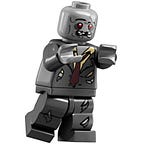Setting Effective Goals
Goals
In our personal lives we often set ourselves goals. In about 5 to 6 weeks from now, people will again be setting themselves little challenges to make themselves better in some way… give up chocolate, give up alcohol, exercise more, learn a new language. The purpose of the goals (or resolutions in this case) are to feel healthier, to gain knowledge or to be a better person.
In our professional lives the same is true. We need goals to challenge us to achieve more, to learn skills we do not have and to improve upon ourselves. Goals don’t just help our workplaces, they help us, and, consequently ensuring that a goal is well defined, measurable and attainable, yet challenging is important.
No matter how good you are at your job, not having a goal is like completing a game with no enemies, like watching a romantic movie where the couple get together at the start, face no obstacles and live happily ever after. No challenge = no fun. No challenge = no improvement. No improvement = Going Backwards. Yep, if you aren’t getting better whilst others are, you’re effectively getting worse.
So, what makes an effective goal?
1. You should be involved in setting the goal.
That may sound obvious but, in a workforce your manager will be probably be involved in setting the goals. Ensure that you can see the relevance of the goal and/or propose a different goal. If you have no involvement, you will be less interested in achieving it.
2. The goal has to be of interest to you.
There’s no more setting yourself a target of learning a language if you have no interest in doing so.
3. The goal has to be attainable.
If a goal is not attainable then you’re less likely to achieve it, will be frustrated at having not achieved it and are less likely to want to challenge yourself further.
4. The goal should be just out of reach.
So, this may be confusing based on ‘3’, but, whilst a goal should be attainable, you want it to push you just that little bit further so, it should be ever so slightly out of reach.
5. The goal should be incremental.
An incremental goal allows you to break a large task into several smaller ones and allows you to measure your progress. For example, your end goal may be to run a 5k. You’ve made it a bit more challenging by setting yourself a 30 day period to do this rather than 6 weeks. To ensure you do achieve this, you should set yourself milestones, i.e. running 1k non-stop within 1 week, 5k with breaks within 3 weeks etc…
6. The goal should have a time limit.
A goal can’t be open ended, if it is, you’re not going to be as bothered to achieve it. Time puts pressure on you. Pressure keeps you challenged.
So, where do you start? Be introspective. Look at what you do well, look at what you could improve upon. Speak to your colleagues and be humble in listening to their input. Take the time to think about what you could improve upon. Do you hit your deadlines? Do you have a gap in your knowledge? Where do you struggle? Self evaluation is key to effective and useful goal setting.
So, now you know, set yourself some challenging goals, push yourself that bit harder and make yourself a little bit better.
